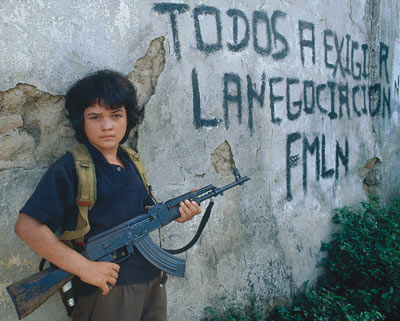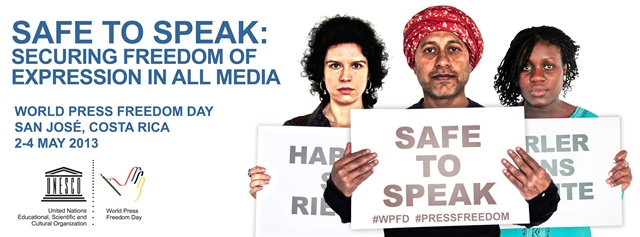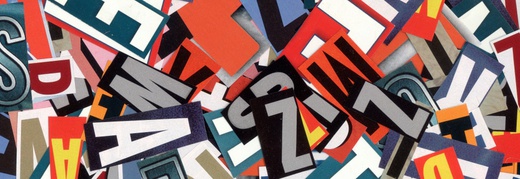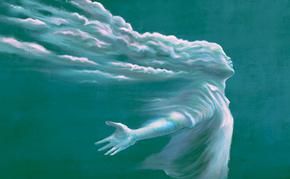The views expressed in our content reflect individual perspectives and do not represent the authoritative views of the Baha'i Faith.
 One day in El Salvador during its terrible twelve-year war I found myself riding in a van through the capitol at dusk with two television journalists – Simone, a young French TV reporter and her Spanish cameraman Eduardo. A charity I volunteered with donated new artificial limbs to war victims, and Simone and Eduardo had just filmed our work for a European television documentary. It was an emotional day — we had given new legs to two poor coffee farmers, a father and a son, both blown up by the same landmine while they plowed a field together. When they both stood for the first time on their new high-tech prosthetics they wept, and so did we.
One day in El Salvador during its terrible twelve-year war I found myself riding in a van through the capitol at dusk with two television journalists – Simone, a young French TV reporter and her Spanish cameraman Eduardo. A charity I volunteered with donated new artificial limbs to war victims, and Simone and Eduardo had just filmed our work for a European television documentary. It was an emotional day — we had given new legs to two poor coffee farmers, a father and a son, both blown up by the same landmine while they plowed a field together. When they both stood for the first time on their new high-tech prosthetics they wept, and so did we.
 Tired but exhilarated by such gratifying work, we headed back in the late afternoon, reaching the city limits as the sun set over San Salvador. Things seemed quiet. Most people knew that travel on El Salvador’s roads at night could get you killed, so as it got dark the traffic always diminished drastically. As we drove past the University, the only vehicle on a wide main street, we heard the automatic weapons fire.
Tired but exhilarated by such gratifying work, we headed back in the late afternoon, reaching the city limits as the sun set over San Salvador. Things seemed quiet. Most people knew that travel on El Salvador’s roads at night could get you killed, so as it got dark the traffic always diminished drastically. As we drove past the University, the only vehicle on a wide main street, we heard the automatic weapons fire.
The incessant roar of an automatic weapon makes one continuous awful noise, like ripping canvas, a hellacious hail of death you immediately want to do everything humanly possible to avoid.
I hit the floor of the van we were in, but Simone immediately yelled ¡Alto! Our driver slammed on the brakes. Eduardo flung the van’s side door open, grabbed the TV camera and he and Simone bolted out into the gathering night – running at full speed toward the campus where the weapons were still firing. I never saw them again.
And I’ll never forget that moment, either. Those courageous instincts struck me then and still do now as the consummate mark of true reporters, whose selfless sense of the great and noble calling of journalism exceeds even their own natural sense of self-preservation. Without any hesitation, Simone and Eduardo instantly acted on the deep conviction that their job – independently investigating and then reporting the truth to the world – held enormous meaning and importance for others.
Baha’is exalt and honor the profession of journalism. Abdu’l-Baha, interviewed by Western journalists many times, said “We may ascertain the progress or retrogression of a nation by its journalism,” and “Journalists must write significant articles, articles that shall foster the public welfare. If they do so they will be the first agents for the development of the community.” – from the Pennsylvania Public Ledger, in Mina Yazdani’s essay for Abdu’l-Baha’s Journey West, p. 151.
Baha’u’llah urged every journalist toward justice:
In this Day the secrets of the earth are laid bare before the eyes of men. The pages of swiftly-appearing newspapers are indeed the mirror of the world. They reflect the deeds and the pursuits of diverse peoples and kindreds. They both reflect them and make them known. They are a mirror endowed with hearing, sight and speech. This is an amazing and potent phenomenon. However, it behoveth the writers thereof to be purged from the promptings of evil passions and desires and to be attired with the raiment of justice and equity. They should enquire into situations as much as possible and ascertain the facts, then set them down in writing. – Tablets of Baha’u’llah, p. 39.
The Baha’i writings envision a future with a unified system of world governance, where journalists are free to report their findings unhindered by any prejudicial economic or political power:
A mechanism of world inter-communication will be devised, embracing the whole planet, freed from national hindrances and restrictions, and functioning with marvelous swiftness and perfect regularity.… In such a world society, science and religion, the two most potent forces in human life, will be reconciled, will co-operate, and will harmoniously develop. The press will, under such a system, while giving full scope to the expression of the diversified views and convictions of mankind, cease to be mischievously manipulated by vested interests, whether private or public, and will be liberated from the influence of contending governments and peoples. – Shoghi Effendi, The Proclamation of Baha’u’llah, p. xii.
 Today the world observes United Nations World Press Freedom Day, which celebrates the fundamental principles of press freedom, defends the media from attacks on their independence and pays tribute to journalists who’ve given their lives in pursuit of the truth. Last year set a terrible new record – 121 journalists died in the line of duty. But an even larger and largely unknown number of dedicated reporters lost their jobs or their ability to independently report the truth when “vested interests, whether private or public,” unduly pressured or took over media outlets worldwide. The Baha’i teachings deplore this trend, and Baha’is work toward the day when our world’s media is liberated from any influence that hinders the truth from coming out.
Today the world observes United Nations World Press Freedom Day, which celebrates the fundamental principles of press freedom, defends the media from attacks on their independence and pays tribute to journalists who’ve given their lives in pursuit of the truth. Last year set a terrible new record – 121 journalists died in the line of duty. But an even larger and largely unknown number of dedicated reporters lost their jobs or their ability to independently report the truth when “vested interests, whether private or public,” unduly pressured or took over media outlets worldwide. The Baha’i teachings deplore this trend, and Baha’is work toward the day when our world’s media is liberated from any influence that hinders the truth from coming out.

















Comments
Sign in or create an account
Continue with Facebookor